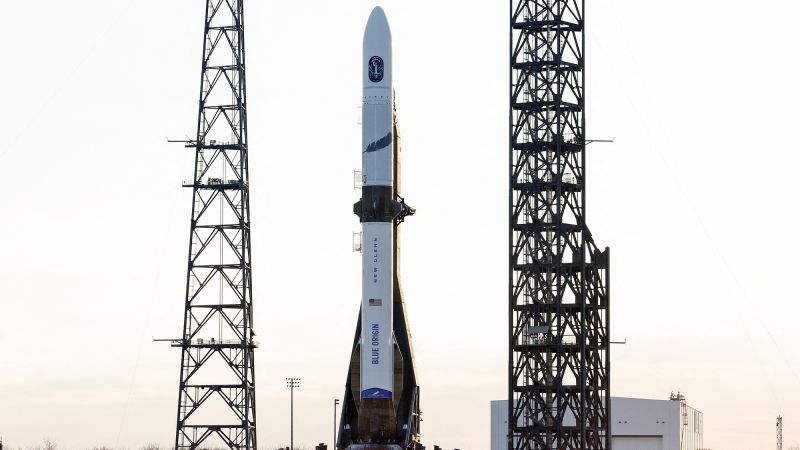In a recent announcement, Blue Origin, the aerospace company founded by Amazon’s Jeff Bezos in 2000, has revealed plans to implement a significant reduction in its workforce, targeting approximately 10% of its employees, which equates to over 1,000 individuals. This news follows closely on the heels of the successful debut of its first orbital rocket, New Glenn. On Thursday, an email from the company’s CEO, David Limp, outlined the details regarding the layoffs, specifying that affected positions would primarily be in engineering, research and development, and program/project management.
The decision to downsize comes as the company is finalizing its annual operational strategy. According to Limp’s communication, the roadmap prepared for the upcoming year underlines a clear intent on bolstering manufacturing capabilities and accelerating the pace of rocket launches. This pivot suggests that Blue Origin is strategically realigning its workforce to support a more streamlined and efficient operational model, in response to previous growth that may have inadvertently led to increased bureaucracy within the organization.
The New Glenn rocket is a noteworthy asset for Blue Origin, recognized for its capacity to transport substantial satellite payloads into space. It recently completed a test flight that demonstrated its operational capabilities through an uncrewed mission. However, despite this success, the company faced a setback when attempts to land the rocket’s first-stage booster—crucial for reusability and cost-effectiveness—were unsuccessful. This aspect mirrors the early journey of SpaceX, which had its own challenges in mastering similar landing maneuvers but eventually succeeded through a series of persistent efforts.
In addition to the developments surrounding New Glenn, Blue Origin has been actively conducting flights with its suborbital New Shepard rocket, which serves a different purpose—offering paying customers brief, exhilarating trips to the edge of space. This venture caters to commercial space tourism, providing a unique experience for those interested in space travel, albeit on a much shorter scale compared to orbital flights.
Within the context of the layoffs, CEO Limp emphasized that the reductions were not directly tied to any one particular project at Blue Origin. Instead, he pointed out that the rapid hiring and expansion witnessed over recent years introduced complexities that necessitated a reconsideration of organizational structure. His communication to employees indicated that there was a growing concern regarding bureaucracy and a dilution of focus on core responsibilities and priorities that ultimately affect the company’s objectives.
The message articulated a vision for a more agile and effective organization, capable of meeting the demands and challenges of the aerospace industry. The CEO’s statements reflect a broader industry trend where companies must adapt to the competitive landscape that is characterized by rapid technological advancements and the need for both innovation and efficiency to ensure long-term sustainability and success.
In conclusion, Blue Origin’s announcement about layoffs paints a picture of a company in transition. Following the promising launch of New Glenn, it faces the dual challenge of staying competitive in an evolving market while restructuring to focus on key priorities. As with many organizations in high-growth industries, the balance between maintaining a skilled workforce and managing operational efficiency will be crucial for Blue Origin’s future endeavors in aerospace and space tourism.












